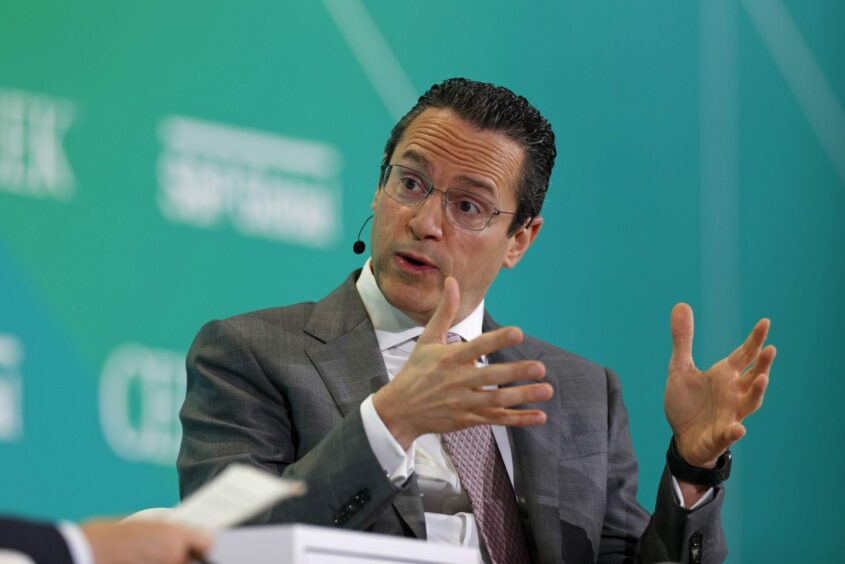
Supermajor Shell (LON: SHEL) is the latest oil and gas producer to see its profits diminish year-on-year after the heady heights of 2022.
For the first six months of 2023, the energy giant made income before tax of $19.7 billion, roughly half the $36.9bn it made during the same period last year.
Revenue for H1 was $162bn, compared to $184bn in 2022, while adjusted earnings, the group’s preferred financial yardstick, topped $14bn, down from $20.5bn.
In Q2 alone, Shell’s pre-tax profits were $5.3bn, a sharp decline from the previous quarter when the company posted takings of $14bn.
A sustained drop in oil and gas prices means several companies, including TotalEnergies and Equinor, have posted diminished year-on-year takings this week.
Optimism despite drop
Despite the narrowing of margins chief executive Wael Sawan delivered an upbeat assessment of the London-listed group’s latest financials.
He confirmed a 15% increase in the company dividend, making good on a pledge made during Shell’s capital markets day earlier this year.
There will also be further rounds of share buybacks – with $3bn to be completed by Q3 – as the group’s board try to improve the company’s standing in the eyes of investors.
In recent months several senior figures at the company have repeatedly claimed that Shell stocks are undervalued given its size, activities and portfolio.
Shell also lowered its cash capex outlook range for 2023 to between $23bn and $26bn, another of the pledges made at its capital markets day.
Reacting to the group’s latest set of results, Mr Sawan said: “Shell delivered strong operational performance and cash flows in the second quarter, despite a lower commodity price environment.
“Today we are delivering on our Capital Markets Day commitment of a 15% dividend increase. We are going further on our buyback guidance by commencing a $3 billion programme for the next three months and, subject to Board approval, at least $2.5 billion at the Q3 2023 results.
“As we deliver more value with less emissions, we will continue to prioritise share buybacks, given the value that our shares represent.”
Stuart Lamont, investment manager at RBC Brewin Dolphin, said: “Lower oil and gas prices have hit Shell’s revenues and profitability. The company had previously set the scene with downgrades in its earnings estimates to reflect a more normalised trading environment, but it has still missed expectations with today’s results.
“The share buyback programme and increased dividend are good news for shareholders, but will inevitably come with questions attached in the current environment.”
Pierce a highlight
Operational highlights for the quarter include the restart of operations at the Pierce field in the UK North Sea in April.
It followed a major redevelopment of the aging asset, about 165 miles east of Aberdeen, to allow it to produce gas – for years the field had only been producing oil.
Pierce is a joint arrangement between Shell (92.52%) and Ithaca Energy (7.48%).
Climate activists target Shell HQ
Shell’s position amongst the oil and gas elite makes it a frequent focus for environmental groups.
And this morning it was no different as campaigners erected a giant spoof advertising billboard outside the group’s London headquarters.
Greenpeace wants to call out the company for posting billions in profits, “while devastating wildfires linked to climate change are causing devastation across Southern Europe, North Africa and North America”.
The billboard, which features an image of a Greek firefighter battling to contain a wildfire near Athens last week, is emblazoned with Shell’s logo and features the slogan “Our profit, your loss”.
Maja Darlington, campaigner at Greenpeace UK, said: “While millions attempt to rebuild their lives after months of extreme weather wreaked havoc from Rhodes to Rajasthan, Shell is upping oil and gas production, slashing investment in renewables and posting billions of dollars in profits. They’re partying like there’s no tomorrow and ordinary people around the world are being forced to pick up the tab.
“It is blazingly clear that global leadership is needed to end this fossil fuel free-for-all, but instead the UK government is flip-flopping on its climate commitments and further enriching the oil giants with new fossil fuel developments. It’s time for the government to find its backbone and force Shell and the rest of the industry to stop drilling and start paying for the damage they are already causing around the world.”
Recommended for you
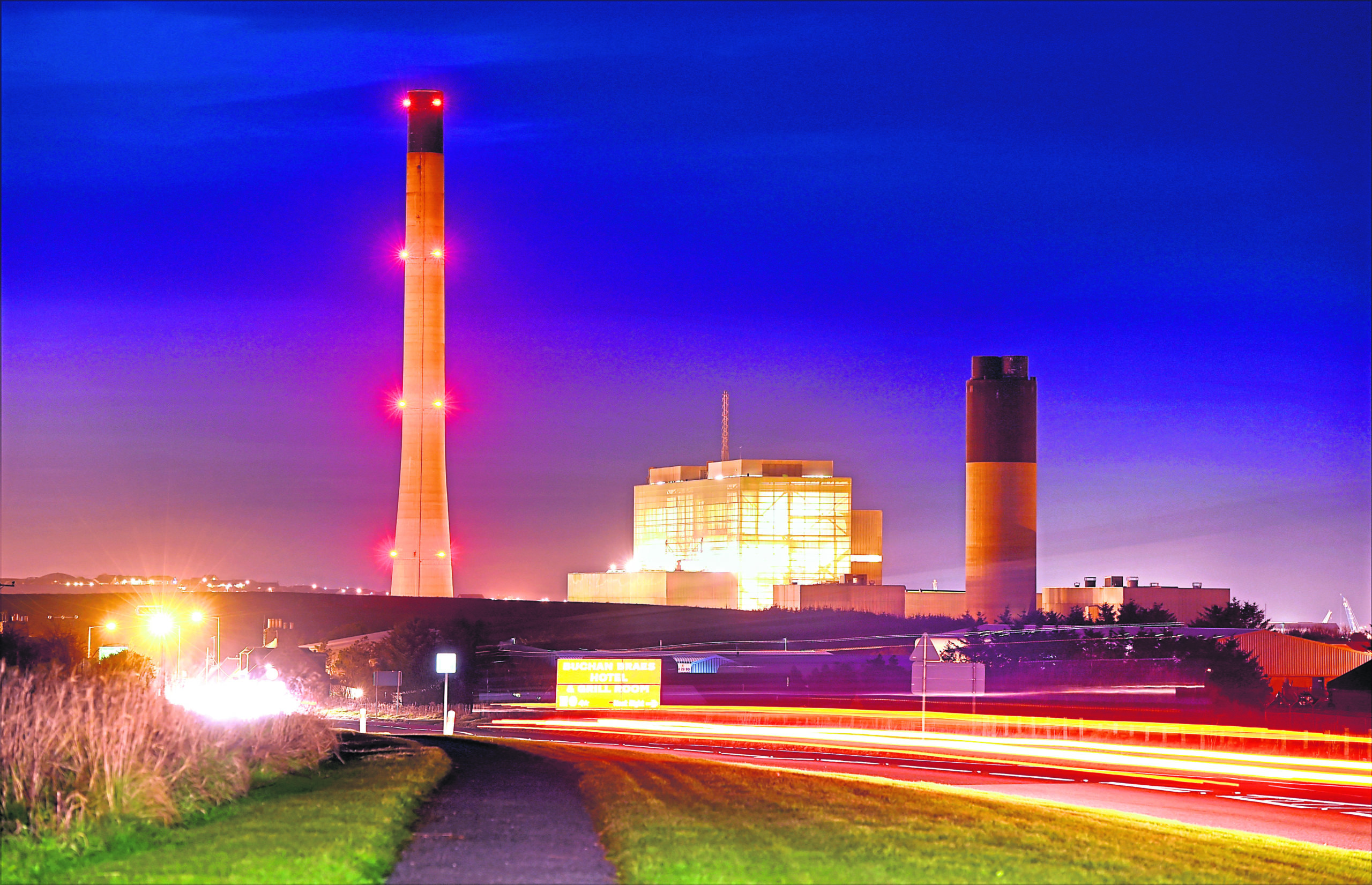

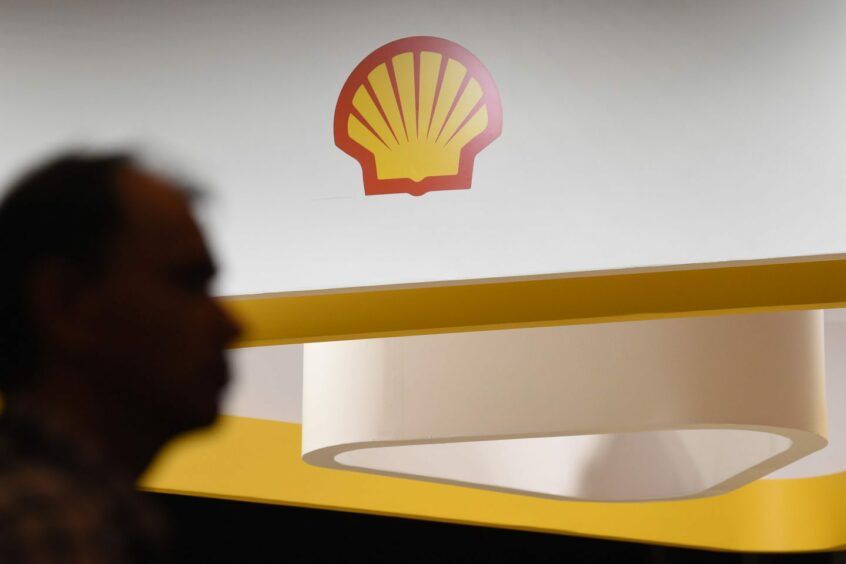
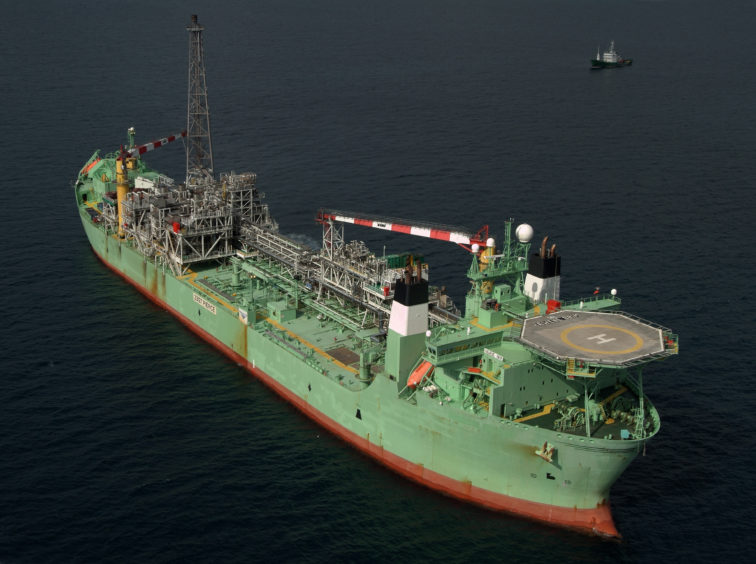
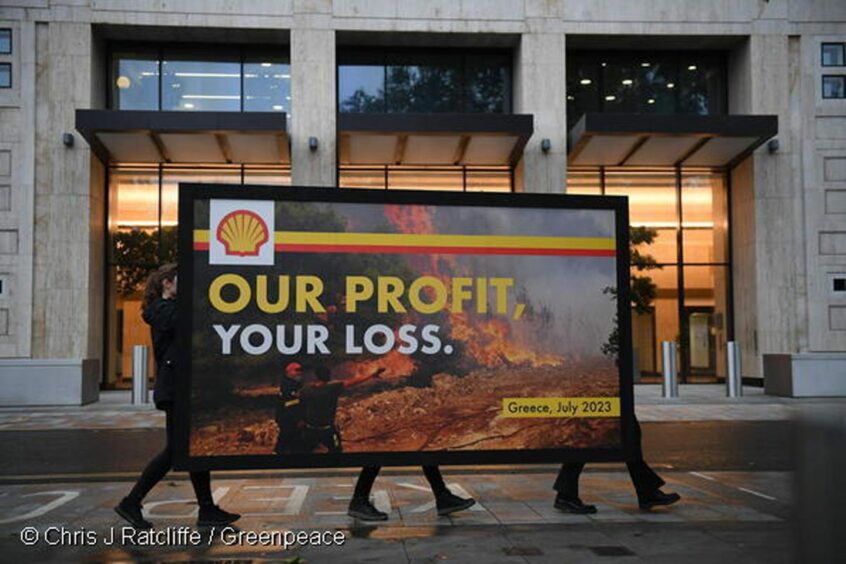 © Supplied by Greenpeace
© Supplied by Greenpeace